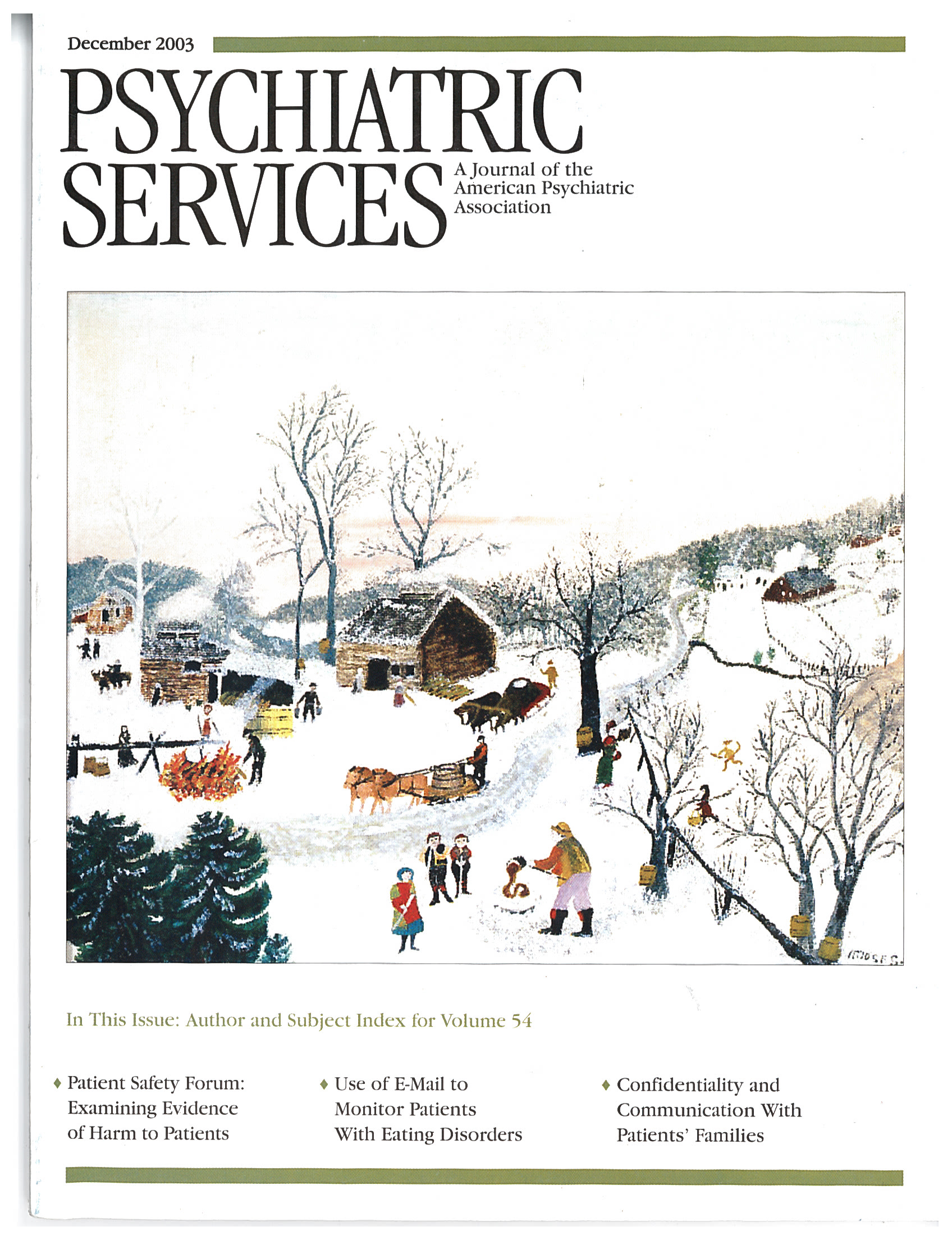Is there more to life than bagels and lox? Sometimes I wonder, and so does Lucinda Trout, a 20- or 30-something who works for an early-morning-interview talk show in New York City. But why did Psychiatric Services send me this book to review, and why did I agree to review it? Perhaps I have a big red "S" painted on my chest, for "sucker." Maybe the title, The Quality of Life Report, caught my eye because of the pervasive belief that the "quality of life" is higher outside New York City. But the ambivalence of New Yorkers is profound; many of them do not believe that life is really possible outside New York City. Yet another common affliction is the paralyzing obsession with "moving out of the city."
My screening question for suicide is, "Do you sometimes think of running away, wish you were dead, or think about hurting or killing yourself?" Most people can endorse running away, which enhances connection and relatedness and sets the stage for further discussion. The island of Maui, where I have been living for the past eight years, is filled with people who do not know that when you run away you take yourself with you.
Even if you do not feel like running away, are you seeking holiday reading? If so, The Quality of Life Report is light, mildly entertaining, and not badly written. This is the story of someone who did run away. High-pressured, fast-paced urban life is often characterized by a relentless, judgmental attitude. Associated with this is tremendous competition, high standards, and intensity. It takes a lot to keep your eye on the ball and not be corrupted by such an environment. And some people don't have what it takes. Each of us has to draw the line, know when the line has been crossed, and "just say no" when we are asked to do something that is illegal, immoral, or just in such poor taste that we cannot stomach it. The key to inner peace is acceptance. Even in a high-powered world, if you pick your battles and know who you are and what you are fighting for, it can work. For someone who hates her job, is insecure, cannot be alone, and is excessively needy and dependent and influenced by others, it is harder. It was so hard for Lucinda Trout that she ran away. And she was so insecure that she continued to put up with abuse. Everyone needs some separation from the circumstances of their origin to develop a sense of independence. Moving to a different place can be part of that separation.
In the background of this novel are issues of women's empowerment and criticism of the media, with television programs' "unofficial interview edict: make 'em cry, say good-bye."
I empathized with Lucinda; after all, I got suckered into doing this review! If you read the book, you might empathize with her too, and also get a vicarious thrill out of imagining life in or outside of New York City. But while some coming-of-age stories are charming, others, like this one, read like a case history—and in this case, the characters are not well developed. I could not empathize enough to truly enjoy this book.

